If you or someone you know snores, you may be wondering if it’s nothing more than an annoying sound or a red flag for something more serious, like sleep apnea. These two conditions can be confusing to differentiate. Snoring can also be a symptom of sleep apnea, a condition that significantly impacts health and quality of life.
To help clarify the distinctions, we’ve compiled this detailed guide, answering the most common questions people have about snoring and sleep apnea. Read on to learn whether it’s time to seek professional care and how we can help.
What is Snoring? Is it Always a Problem?
Snoring occurs when the airflow is partially obstructed as it moves through the throat and nose during sleep. This obstruction causes the surrounding tissue to vibrate, generating the familiar buzzing or rattling noise.
While snoring can vary in volume and frequency, it is generally harmless for most people. However, chronic or loud snoring could indicate an underlying issue, particularly when it disrupts your or your partner’s sleep.
When is Snoring Just a Nuisance?
For many, snoring is a mild problem caused by temporary factors like fatigue, nasal congestion, allergies, or sleeping on one’s back. Lifestyle choices such as alcohol consumption before bedtime can also contribute to occasional snoring.
In these cases, making simple adjustments like changing your sleep position or avoiding heavy meals and alcohol before bed often resolves the issue.
When Does Snoring Signal a Bigger Issue?
When snoring becomes persistent, loud, and disruptive, it might be a sign of obstructive Sleep Apnea (OSA). If left untreated, this condition can lead to serious health problems.
Key indicators that your snoring might be more than just a nuisance include gasping for air, choking sounds during sleep, and feelings of exhaustion even after a full night’s rest.
What is Sleep Apnea, and How is it Different from Snoring?

Unlike simple snoring, sleep apnea is a medical condition that disrupts normal breathing during sleep. It is most commonly caused by a blockage in the airway (OSA) or signaling issues in the brain (central sleep apnea). These repeated pauses in breathing, which can last anywhere from a few seconds to a minute, prevent restorative sleep and strain the body.
What are the Warning Signs of Sleep Apnea?
- Pauses in Breathing: This is the most significant distinguishing factor. If there are noticeable interruptions in your or your partner’s breathing while snoring, it’s a classic red flag for sleep apnea.
- Gasping or Choking Sounds: Loud snoring that stops abruptly, followed by gasping, choking, or snorting, strongly suggests a sleep apnea diagnosis.
- Daytime Fatigue: People with sleep apnea often feel drained during the day, even after spending a full night in bed. Brain fog, irritability, or difficulty concentrating may also occur.
If you notice these symptoms, it’s important to seek professional help right away.
Who is at Risk for Sleep Apnea?
Anyone can develop sleep apnea, but certain factors increase the risk. These include:
- Obesity or overweight
- Smoking and alcohol use
- A family history of sleep apnea
- Being male or post-menopausal
- Aging (risk increases after age 40)
But even those who don’t fall into these categories may benefit from a visit our Sleep Clinic if they regularly experience snoring or fatigue.
How Can You Tell if You Have Sleep Apnea or Just Snoring?
One of the challenges in distinguishing between snoring and sleep apnea is that you may not fully realize what’s happening while you’re asleep. Often, it takes an observant partner to point out the signs of disrupted breathing, gasping, or other symptoms.
If you suspect you may have sleep apnea, a professional sleep assessment is key. At Better Sleep Mid Ohio Valley, our patients can undergo comprehensive sleep evaluations to determine the root cause of their sleep disturbances.
What Are the Consequences of Unchecked Sleep Apnea?
Unlike regular snoring, untreated sleep apnea poses numerous health risks, including:
- High blood pressure
- Heart disease and stroke
- Type 2 diabetes
- Increased risk of accidents due to daytime drowsiness
- Mood disorders such as anxiety and depression
This is why it’s crucial to address sleep apnea early rather than ignoring symptoms.
What Treatments are Available for Snoring and Sleep Apnea?

The good news is both conditions are treatable, especially with expert care. At Better Sleep Mid Ohio Valley, we offer several options are available to improve your sleep and health.
1. Oral Appliance Therapy
For those uncomfortable with CPAP machines, oral appliance therapy provides an effective, non-invasive alternative. These custom-fitted devices gently reposition the jaw to keep the airway open during sleep, reducing both snoring and sleep apnea symptoms.
2. Snoring Treatment
If snoring is unrelated to sleep apnea, it can often be resolved with lifestyle changes, positional therapy, or minimally invasive adjustments provided by professionals.
3. Professional Assessments and Diagnoses
Not sure what’s causing your poor sleep? A visit to a trusted sleep clinic like Better Sleep Mid Ohio Valley allows patients to undergo personalized evaluations that identify the issue and offer tailored solutions.
4. Lifestyle Adjustments
Maintaining a healthy weight, avoiding back sleeping, and minimizing alcohol intake can also play a role in reducing snoring and improving overall sleep.
Why Choose Better Sleep Mid Ohio Valley?
When it comes to differentiating snoring from sleep apnea, as well as finding long-term solutions, offers the perfect blend of expertise and care. Here’s what makes them stand out:
- Comprehensive Testing: These thorough evaluations uncover the root cause of your sleep issues, ensuring the right treatment is applied.
- Tailored Care Plans: Every patient receives personalized solutions, whether that’s oral appliance therapy, targeted snoring treatment, or a lifestyle plan.
- Expert Team: The clinic is led by experienced professionals equipped to handle complex sleep conditions with care and precision.
Should You Seek Professional Help?
Persistent snoring isn’t something to ignore, especially if daytime fatigue and disrupted breathing are part of the picture. With the right care from experts like those at Better Sleep Mid Ohio Valley, you can enjoy restful nights, energized days, and a significant boost to overall health. Take control of your sleep by scheduling a consultation or sleep quiz today.
